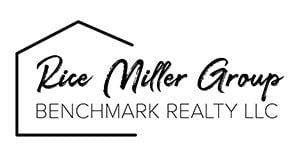Many first-time homebuyers, particularly recent college graduates are wondering how student loan debt may affect their ability to qualify for the best mortgage programs. A recent survey by Student Loan Hero (a service that helps people pay off student debt more efficiently) reported that 40% of college-educated adults postponed buying a home because of their student loans. Even though student debt has surged by 56% in the last decade, home ownership is still well within reach for many. Here are some things to think about, along with a couple of recent changes that may help those with student debt qualify for a mortgage.
Understand your “Debt-to-Income” ratio (DTI). This is simply your total gross (pre-tax) monthly income divided by your total monthly credit obligations (credit cards, installment loans, student loans, etc., PLUS your new potential mortgage payment). In most situations, this number needs to be 45% or less…but in certain situations can be 50% or higher depending on the loan program and the borrower’s credit. While that number may seem high, one thing to consider for those newly entering the workforce is that salary is likely to increase over time, while a mortgage payment will remain relatively unchanged (as opposed to a rent payment).
Refinance/Consolidate your Student Loans. There are some services that offer consolidation and/or refinancing that in some situations will lower the monthly payment and the interest paid over the term of the loan. While this is not necessarily a good option for everyone, some may benefit from it and it’s certainly worth checking out.
Understand the Impact of Your Credit History. Credit history and scores are usually the biggest impediment to mortgage qualification. You can Get a free copy of your credit history from all three credit bureaus once a year at www.annualcreditreport.com. While you won’t see the actual scores (unless you purchase that option), you can spot any information that may be adversely affecting your credit records and address it. The mortgage industry has its own unique credit scoring model and the scores can vary widely from what you may find on consumer credit sites such as Credit Karma.
Take Advantage of Fannie Mae’s New Policies. Fannie Mae, the government-sponsored enterprise that buys and securitizes most home loans recently rolled out a couple of new policies designed to make it easier for recent college grads with student loan debt and good credit to get a mortgage:
• Debts paid by other parties: some “non-mortgage” debt (credit cards, student loans) paid by others (e.g. employers, parents, etc.) can be excluded from the DTI calculations, making it potentially easier to qualify.
• Income-Based Repayments (IBR): In the past, lenders were required to ensure that the payments you were currently making would pay off the loan within the stated term, and would often increase your IBR payment to 1% of your loan balance for qualification purposes…but no more! This new change allows lenders to use the current payment (even if it’s zero!) for DTI calculations, improving the opportunity to qualify.
Bottom Line? You can qualify for a mortgage with student loan debt. Understand your options by talking to a lender today. A mortgage lender can walk through your credit history, review your income and asset information, and help you either plan for the future or choose the best loan program to fit your needs.
Tim Britt is a Senior Mortgage Loan Officer (NMLS 1369718) with Supreme Lending
in Franklin, TN, and is licensed to originate mortgages in TN, AL, KY and MI. He can
be reached at 615-415-8887 or [email protected]. You can apply for
a mortgage online at timbritt.supremelending.com.

window.dojoRequire([“mojo/signup-forms/Loader”], function(L) { L.start({“baseUrl”:”mc.us13.list-manage.com”,”uuid”:”b3560441a030ec3ce9b8bfb77″,”lid”:”4f35c52094″,”uniqueMethods”:true}) })




